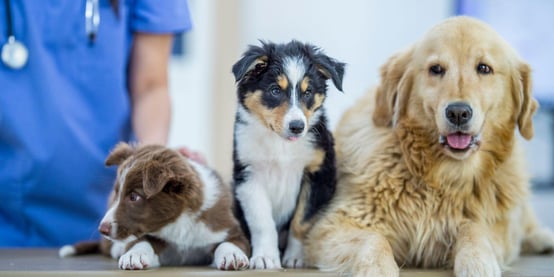Thinking about cat poop probably isn’t your favourite way to pass the time, but when it comes to being a pet parent, sometimes your pet’s movements are top of mind. Especially if your pet seems a little, well… backed up.
Cat constipation is rarely cause for an emergency vet visit, but it’s still worth treatment to ensure your feline is comfortable and healthy. Recognizing the signs of cat constipation early will help ensure that you address the issue as soon as possible, avoiding more serious complications.
In this guide, we’ll discuss cat constipation symptoms, treatments, and preventive options so you can help your cat keep things moving along the right way.
What is Cat Constipation?
.png?width=1600&height=800&name=FUR-Blog-Complete%20Guide%20to%20Cat%20Constipation%20Symptoms%20%26%20Remedies%202%20(1).png)
Photo by Tran Mau Tri Tam on Unsplash
“Constipation is defined as an abnormal accumulation of feces in the colon resulting in difficult bowel movements.” (Source: VCA Canada) It occurs when the stool becomes hard, dry, and challenging to expel from the body. This can lead to discomfort, straining during defecation, and sometimes pain for the affected cat.
Many cat owners will suspect their pet is constipated when they notice them using the litter box less often than usual. Your cat should be passing stool every 24 to 36 hours, at the very least.
Cat Constipation Symptoms
The most common indication that a cat has constipation is if they are having difficulty passing stools. You might notice that your cat is straining to defecate or is having no bowel movements at all.
Symptoms of cat constipation may include:
- Infrequent or no bowel movements
- Straining or crying in the litter box
- Hard, dry stools or small amounts of feces
- Drinking more or less water
- Pain or discomfort while defecating
- Difficulty jumping up
- Walking stiffly
- Lethargy
- Loss of appetite
- Nausea
- Vomiting
- Abdominal discomfort or bloating
Note: If your cat shows signs of constipation or discomfort while trying to defecate, seeking veterinary advice is recommended to ensure timely and proper management of the condition.
What Causes Cat Constipation?
.png?width=1600&height=800&name=FUR-Blog-Complete%20Guide%20to%20Cat%20Constipation%20Symptoms%20%26%20Remedies%203%20(1).png)
Photo by Mikhail Vasilyev on Unsplash
There are several factors that can contribute to cat constipation.
The most common causes of cat constipation are:
- Dietary issues: Lack of fiber, inadequate water intake, or consuming certain foods that don't promote regular bowel movements can contribute to constipation.
- Dehydration: Cats that do not drink enough water or have underlying health issues affecting their hydration levels might experience constipation.
- Hairballs: Ingested fur, common in cats that groom excessively, can accumulate in the digestive tract, leading to constipation.
- Underlying health conditions: Conditions such as megacolon, pelvic injuries, tumours, neurological disorders, or other gastrointestinal problems can cause constipation in cats.
- Lack of exercise: Sedentary lifestyles or lack of physical activity can impact bowel movements in cats.
- Anxiety: When a cat experiences stress or anxiety, it can affect their gastrointestinal tract and bowel movements. This might result in altered digestion and the slowing down of the movement of food through the intestines, potentially leading to constipation.
One less common cause of constipation in cats is a condition called "megacolon." Megacolon is a gastrointestinal disorder characterized by an abnormally enlarged and dysfunctional colon. Megacolon can be congenital (present from birth) or acquired later in life due to various factors, such as nerve damage, chronic constipation, or underlying medical conditions affecting the nerves or muscles of the colon. This can only be diagnosed by a veterinarian.
Is Cat Constipation an Emergency?
Not necessarily. If your cat shows mild signs of constipation or discomfort while trying to defecate, seeking veterinary advice is certainly recommended, but may not warrant an emergency visit. However, if your cat displays severe symptoms, such as vomiting or rapid weight loss, an emergency vet visit is recommended.
A veterinarian will be able to diagnose the underlying cause of constipation and provide appropriate treatment. These treatments may include dietary modifications, laxatives, enemas, or in severe cases, surgery.
How to Treat Cat Constipation
Once you’ve confirmed with a veterinarian that your cat does in fact have constipation (as opposed to another condition), you have a few treatment options. Some of these might be veterinarian prescribed, while others can be implemented at home.
Veterinarian-administered treatment
After diagnosing cat constipation, a veterinarian may prescribe laxatives specifically designed to soften the stool or promote bowel movements in constipated cats. These medications can help ease the passage of feces.
In severe cases of constipation, your veterinarian might administer enemas to help soften and remove the impacted stool from the colon. Enemas should only be performed by trained professionals to avoid injury or discomfort to your pet.
Modify your cat’s diet
There are specialized diets or prescription cat foods formulated to improve digestion and regulate bowel movements. These diets often contain higher levels of fiber or other ingredients aimed at easing constipation.
Fluid therapy or manual extraction
Dehydration can often exacerbate constipation. In cases where your cat is dehydrated, veterinary treatment might involve administering fluids intravenously or subcutaneously to rehydrate your furry friend and help soften the stool.
Alternatively, a veterinarian might need to manually remove the impacted feces from your cat's colon while your cat is under anesthesia. This is typically done in extreme situations and requires professional expertise.
Home remedies for cat constipation
These home-based solutions might offer relief for cat constipation:
- Manage stress levels and anxiety.
- Encourage increased physical activity to aid in weight management, alleviate anxiety, and support regular intestinal movement.
- Experiment with a different diet, such as lamb or chicken, opting for limited ingredients or hypoallergenic formulations to reduce inflammation and facilitate normal bowel function.
- Incorporating fiber-rich foods into the diet or offering small amounts of canned, pureed pumpkin or ginger as natural remedies.
- Introduce probiotics to support gut health.
- Monitor and help your cat maintain an optimal weight.
Note: Exercise caution with over-the-counter laxatives; consult your veterinarian beforehand, especially for cats with underlying or chronic conditions, as these treatments might exacerbate symptoms.
Extreme cases: surgery
In rare and severe cases where other treatments have been ineffective, or if there's an underlying structural issue causing constipation, surgery might be necessary.
Surgery could involve removing part of the colon or addressing an anatomical abnormality.
What to Feed a Constipated Cat
.png?width=1600&height=800&name=FUR-Blog-Complete%20Guide%20to%20Cat%20Constipation%20Symptoms%20%26%20Remedies%204%20(1).png)
Photo by Laura Chouette on Unsplash
When dealing with a constipated kitty, adjusting your pet’s diet can make a huge difference. Feeding them the right foods (and avoiding the wrong ones) can help support your cat’s digestion and even resolve constipation issues.
What to feed:
- High-fiber foods: Introducing fiber into a cat's diet can aid in softening the stool and promoting regular bowel movements. Specialized cat foods formulated with higher fiber content can be beneficial. Veterinarians might recommend specific high-fiber diets or supplements.
- Canned or pureed pumpkin: Plain canned pumpkin (not pumpkin pie filling) can be helpful due to its fiber content. It's often recommended to give a small amount of canned pumpkin (a teaspoon or two) to constipated cats as it can add bulk to the stool and facilitate smoother bowel movements.
- Moisture-rich foods: Wet or canned cat food has higher moisture content than dry kibble, which can help keep your cat hydrated. Adequate hydration is crucial in preventing or relieving constipation.
- Probiotics: Adding probiotics to your cat's diet can aid in restoring healthy gut bacteria and improving digestive function.
What NOT to feed:
- Dry food only: Dry kibble lacks the moisture content found in wet food, which can contribute to dehydration. Exclusively feeding dry food might increase the risk of constipation.
- Highly processed foods: Some highly processed or low-quality cat foods may lack essential nutrients and adequate fiber, potentially contributing to constipation.
- Toxic foods: Avoid feeding cats human foods that are toxic to them, such as chocolate, onions, garlic, grapes, raisins, and certain artificial sweeteners like xylitol.
Preventive Measures to Avoid Cat Constipation
.png?width=1600&height=800&name=FUR-Blog-Complete%20Guide%20to%20Cat%20Constipation%20Symptoms%20%26%20Remedies%205%20(1).png)
Photo by Milada Vigerova on Unsplash
Cat constipation can sometimes be avoided by implementing just a few modifications to your cat’s lifestyle.
Follow these recommendations to significantly reduce the risk of constipation and promote optimal digestive health!
- Ensure your cat's diet contains adequate fibre to promote regular bowel movements. High-quality cat foods formulated with sufficient fiber can help prevent constipation.
- Encourage adequate water intake by providing fresh, clean water at all times. Moisture-rich foods, such as wet canned cat food, can also contribute to a cat's hydration.
- Encourage physical activity through playtime, interactive toys, and engaging activities. Exercise helps maintain overall health and promotes proper gastrointestinal function.
- Schedule routine check-ups with a veterinarian to monitor your cat's health, address any potential issues early, and receive guidance on appropriate preventive care.
- Maintain regular grooming and brushing to help reduce the amount of fur a cat ingests, minimizing the risk of hairballs that could contribute to constipation. Additionally, specialized hairball control diets or supplements might be recommended.
- Minimize stressors in your cat's environment. Provide a stable and comfortable living space, address any sources of anxiety or stress, and maintain regular routines to help reduce stress levels.
- Ensure clean litter boxes and provide easy access to them. Cats may avoid using dirty or unpleasant litter boxes, leading to withholding stool and potential constipation issues.
- Discuss with a veterinarian about the potential use of supplements or probiotics that could support digestive health and prevent constipation.
Always consult a veterinarian before making significant changes to your cat's diet, especially if your pet has chronic constipation or underlying health issues. A veterinarian can recommend specific dietary modifications tailored to your cat's individual needs, ensuring your cat receives a balanced and appropriate diet.
Get Financial Relief for Unexpected Vet Visits
Need to visit the vet for a pet medical issue? Whether your cat has constipation, an illness, or other medical condition, if you’re already protected with pet insurance it can often help you cover the costs of an unexpected vet visit.
Furkin Pet Insurance covers up to 80% of eligible expenses related to unexpected illness, injury, or surgery. With Furkin, you can continue providing the best care to your pet, without the financial stress of high vet bills.
The best time to get pet insurance is before you need it. Get a quote from Furkin Pet Insurance today!
Featured image by Dmitry Ulitin on Unsplash



